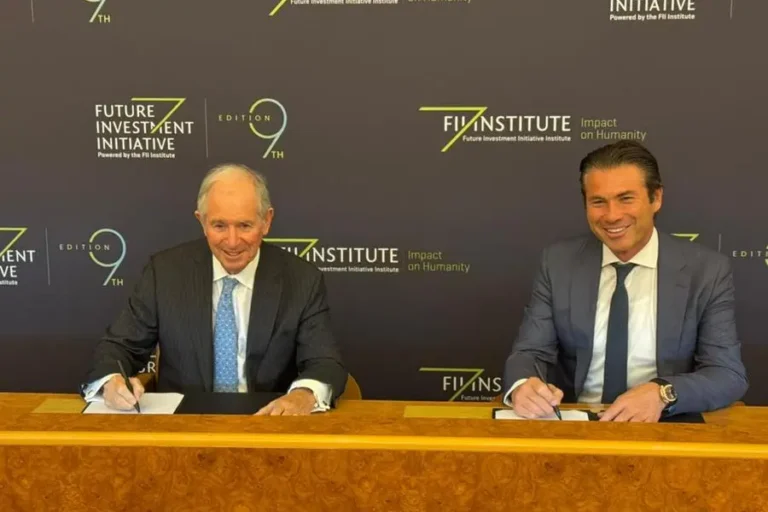In a significant push into the North-African renewable-energy landscape, Egyptian solar pioneer KarmSolar has committed to invest approximately USD 110 million over the next three years in the Egyptian market, focusing on solar and hybrid-solar solutions to support the country’s broader decarbonisation and energy-security goals.
Founded in 2013, KarmSolar has carved out a niche as one of Egypt’s home-grown developers of solar off-grid and hybrid systems, particularly for industrial and commercial clients. The new investment round is intended to scale its deployment of ground-mounted solar parks, rooftop installations and hybrid systems that combine solar PV with storage or conventional generation, aligned with Egypt’s push to increase the share of renewables in its energy mix.
Egypt has set aspirations to raise its renewables share to around 42 percent by 2035 and launched multiple tenders for solar, wind and hybrid projects in recent years. International players such as EDF Renewables, ACWA Power and Masdar have already established a presence in Egypt’s renewables sector. For instance, Masdar has secured multiple solar-wind hybrid projects in Egypt, signalling a robust international interest.
KarmSolar’s planned investment covers both development and deployment phases, and it has identified key segments: industrial clients seeking to reduce diesel dependence, utility-scale solar parks supplying into Egypt’s grid, and hybrid solar-storage or solar-diesel systems for remote or micro-grid contexts. The firm intends to coordinate with national frameworks, such as those overseen by the Egyptian Electricity Holding Company or the New and Renewable Energy Authority, using feed-in or build-operate models consistent with Egypt’s recent tenders.
While KarmSolar did not immediately break down the specific allocation of the USD 110 million, it described its strategy as “accelerated deployment across multiple segments of Egypt’s growing solar-hybrid energy ecosystem”. The move comes at a time when global solar-PV module prices are stabilising after several years of decline and battery-storage costs continue to fall, creating more favourable economics for hybrid and dispatchable renewable systems.
In recent years, KarmSolar has already delivered several pilot and commercial installations in Egypt, including rooftop systems for industrial customers and hybrid micro-grid installations in remote areas. Though not yet at the scale of major international utility-scale developers, the company’s local footprint, understanding of Egyptian grid-and-off-grid dynamics and access to local partners position it advantageously in the fast-evolving ecosystem. Comparable regional specialists, such as the UAE-based Yellow Door Energy (active in MENA commercial/industrial solar) or Egypt-based developer Scatec Egypt, have demonstrated the viability of regional solar rollout strategies.
Industry analysts note that Egypt’s installed solar-PV capacity reached more than 6.7 GW by the end of 2023, with annual new additions trending upward. That trajectory, combined with government-backed tender rounds and increasing corporate demand for on-site renewables, offers a favourable backdrop for KarmSolar’s expansion. By committing USD 110 million, KarmSolar is signalling its ambition to move beyond smaller-scale deployments into more significant segments of the Egyptian market.
The timing of the investment is also shaped by evolving business models in the region: more commercial and industrial consumers are moving away from diesel-backed generation toward cleaner solar or hybrid alternatives; utilities and regulators are laying groundwork for auctions and structured PPAs; and global ESG-driven capital is looking increasingly at Middle-East/North-Africa renewable-energy opportunities.
KarmSolar emphasises that the forthcoming projects will adhere to international environmental and social-governance (ESG) standards and that it plans to collaborate with international financiers and local banks to secure debt and equity funding. In doing so, the company is attempting to mirror the capital-structure approaches of larger peers such as EDF Renewables and Masdar, which have tapped institutional finance to achieve scale.
The company has yet to announce specific project names, capacity targets (in MW or GW) or offtake counterparties, but it said that detailed deployment plans will be released in the coming months. Given the scale and ambition of USD 110 million in investment, observers will look for whether KarmSolar can deliver utility-scale projects, engage in structured PPAs and attract institutional investors that typically back large-scale renewable developers.
In short, as Egypt continues to expand its solar infrastructure and shift toward cleaner energy, KarmSolar’s investment pledge signals its intent to play a more prominent role—and potentially help fill the gap between smaller rooftop installations and mega-scale generation projects. Time will tell how quickly the company can convert its investment into operational capacity, integrate into Egypt’s restructuring grid and compete alongside established international players.
If executed as planned, this investment may mark a meaningful step in the diversification of Egypt’s renewable-energy ecosystem, bringing in a local developer with regional know-how and a strong commitment to the country’s green-energy roadmap.




KarmSolar to invest USD 110M in Egypt’s renewable energy